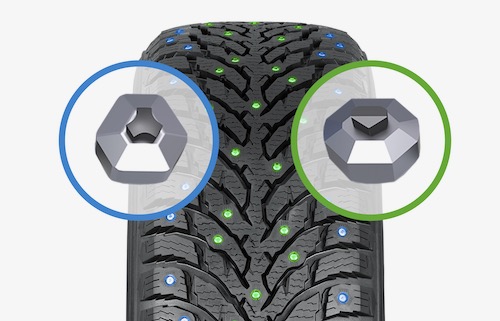All-season tires have many advantages, with the biggest advantage possible being their lower rolling resistance. This is because with their less aggressive tread pattern, compared to both winter tires and all-weather tires, they allow for a lower rolling resistance and in general a smoother ride. These advantages also hold true for SUV all-season tires.
The biggest disadvantage is that they are not approved for severe winter weather. This is because they do not hold the “Three Peak Mountain Snowflake” symbol”, which in turn means that they have not passed required performance criteria in snow testing and are thereby not considered severe snow service rated. This however is not of any concern in the many States with mild weather.
The fact that all-season tires are not made for severe winter is also the reason they perform better than all-weather tires in all other seasons of the year and it is also possibly why they are the most popular tires. In fact, they excel in both driving comfort and fuel efficiency over all-weather tires and winter tires. The reason being that their tread is less aggressive which allows for a smoother ride and longer tread life while providing optimal handling on both dry and wet roads. It is also this less aggressive tread that allows them to have the lowest rolling resistance possible. It is therefore also the tires of choice for hybrid and electric cars.
If in the market for a good quality all-season tire, then you should consider the Nokian zLine all-season tires. They feature the latest technologies ensuring uncompromising performance, excellent handling, stability and durability, comfort and safety on wet and dry surfaces alike. It also provides the best hydroplaning protection. This is a very important feature as hydroplaning can be very serious and quite frightening. These tires are also recommended for hybrid and electric cars.
When shopping for tires it is also important to respect the manufacturer’s recommended tire dimensions for your make and model SUV. If for example buying tires for your car with the recommended dimensions by the manufacturer being 225/65R17 then you would need to buy 225/65R17 all-season tires. This means that the width is 225 mm and the number 65 means that the tire’s section height is 65% of the tire’s section width. The last number is the diameter of the rim in inches.
If the choice exists to equip your vehicle with all-season tires, then that is a good choice. There is always the option if residing in an area with severe winter weather, to place dedicated winter tires on your vehicle during the winter months. This actually remains the best option for both safety and handling on snow and ice. If the area where you live does not have severe winter conditions than the all-season tires can be used year-round offering a durable, comfortable and silent driving experience.
For more information regarding all-season tires, visit: nokiantires.com
